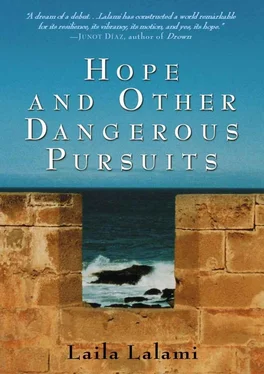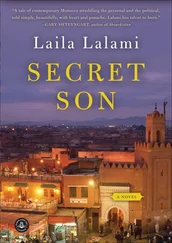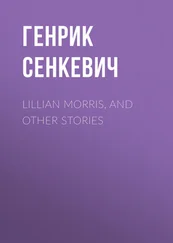Betoul left, slamming the door behind her.
ORDINARILY, AFTER FATEN came home she took a shower, slept until two, and then took a sandwich to the park and watched old couples feeding the pigeons or young ones kissing on the benches. If the weather was too cold, she watched television or went shopping. But today her routine was already off. She couldn’t sleep. She stared at the ceiling for a while and then turned to look at her nightstand, where a pocket-size edition of the Qur’an lay, a thin film of dust over it. She remembered her college days, when she’d decided to wear the hijab and preached to every woman she met that she should do the same. How foolish she had been.
She thought about her best friend, Noura, back in Rabat, and wondered what had happened to her, whether she’d kept the hijab or whether, like Faten, she’d taken it off. Noura was probably still wearing it. She was rich; she had the luxury of having faith. But then, Faten thought, Noura also had the luxury of having no faith; she’d probably found the hijab too constraining and ended up taking it off to show off her designer clothes. That was the thing with money. It gave you choices.
She tried to chase Noura out of her mind. That friendship had cost her too much. She knew that Noura’s father, who’d taken a dim view of their friendship, had pulled some strings to have her kicked out of the university. If it hadn’t been for him, maybe Faten would have graduated, maybe she wouldn’t have been so careless in that moment of anger, maybe she wouldn’t have said what she did about the king, maybe she would have finished school and found a job, maybe, maybe, maybe.
She got out of bed and went to the bathroom to get a Valium. The main thing to survive this life here was to not think too much. She poured herself a glass of water in the kitchen. Her eye fell on Betoul’s calendar, taped to the side of the refrigerator. The Eid holiday was coming up and Betoul had circled the date, probably so she could remember to send a check to her family. It made Faten nostalgic for celebrations, even as she knew there was not much to be nostalgic about. After she had moved back in with her mother in Rabat, Eid amounted to an extra serving at dinner. There were never any new clothes to wear or a barbecued lamb to eat or shiny coins to feel in her pocket. Still, she had a certain fondness for those special times because at least her mother didn’t work on Eid and they could spend the day together. She pushed the memories out of her mind and shuffled over to the living room.
She lay on the sofa, waiting for the Valium to kick in. There was a program on TV about dromedaries, and she watched, eyes half-closed, as the Spanish voice-over described the mammal’s common habitat, his resistance to harsh living conditions, his nomadic patterns, and his many uses, as a beast of burden, for his meat and milk, and even for his dung, which could be burned for fuel. Soon Faten’s eyelids grew heavy and she fell asleep.
WHEN MARTÍN SHOWED up again a week later, she didn’t feel the same sense of glee that she’d had in the months she’d known him. He came out of the car to ask her to join him, and she hesitated. “What’s wrong?” he asked.
She shrugged, her eyes scouring the other cars, but he wouldn’t leave. “What do you want?” she asked.
“What do you think?” He laughed. She wasn’t sure whether it was with her or at her. He held out his hand and she took it and followed him to the car. Again he drove out to Huertas. A song by Cheb Khaled was on the CD player, and as she listened to the lyrics she wondered whether Martín knew what they meant.
After a few minutes, Martín asked her where she grew up, as he had done the last time, as though he were checking that her answers hadn’t changed. This time, she had no illusions about what he wanted. She looked out of the window. “Casablanca,” she said.
She thought about her first john, her first week in Spain. The captain of the boat that had brought her here hadn’t bothered to land in Tarifa; he’d started turning back as soon as they were within swimming distance of the coast. She’d managed to get to the beach, where the Spanish Guardia Civil was waiting for them. Later, in the holding cell, she saw one of the guards staring at her. She didn’t need to speak Spanish to understand that he’d wanted to make her a deal. She remembered what her imam had said back at the underground mosque in Rabat — that extreme times sometimes demanded extreme measures.
The guard had taken her to one of the private exam rooms, away from everyone else. He lifted her skirt and thrust into her with savage abandon. He was still wearing the surgical gloves he’d had on to examine the group of migrants who’d landed that day. And, all the while, he kept calling her Fatma. And he said other words, words she didn’t understand, but that she’d grown used to now. Over the years that followed, she’d had time to hear all the fantasies, those that, had she finished her degree, she might have referred to disdainfully as odalisque dreams. Now they were just a part of a repertoire she’d learned by heart and had to put up with if she wanted to make a living.
“Where did you grow up?” Martín asked.
“In a Moorish house.”
“With your parents?”
“I didn’t see much of my father. I spent all my days in the harem.”
“With your siblings?”
“With my six sisters. They initiated me into the art of pleasing men.”
Martín chuckled. She could tell he was pleased with the game.
“Why do you come to me?” Faten asked. “There are a lot of girls out there. Like Isabel, and—”
“Women in this country,” he said, shaking his head. “They don’t know how to treat a man. Not the way you Arab girls do.”
Faten felt anger well up in her. She wanted to slap him.
“I’ve been reading up,” he said. “About the duties of the woman to the man and all that. It’s a fascinating subject.”
She watched his clear, open face become excited as he told her that he knew things about her and her people. That was the trouble with him. For all his studying, all his declarations of understanding, he was no different than his father. He didn’t know anything.
She stared at Martín in silence, trying to visualize herself in the way he saw her, the way he wanted her to be — that was the price she would have to pay every time if she wanted to see him. When he started talking about how he would help her get her immigration papers in order, how he cared about her, she raised her palm to stop him. “I don’t need your help,” she said.
He gave her a look that made her feel he didn’t believe her, then continued talking, as though her acquiescence wasn’t required when it came to the matter of helping her, because he knew what was better for her.
“Time’s up,” she said.
He got his wallet out, continuing to explain his plans for her.
“From now on, all the chitchat is extra,” she added. He stopped talking, eyebrows raised in surprise, then handed her a few more bills, which she pocketed.
“I think you should find yourself someone else next time,” she said. She opened the car door and got out.
FATEN HADN’T SEEN Betoul for ten days. Her schedule had miraculously adjusted after their sharp exchange, to the point that Faten always seemed to come home only a few minutes after Betoul left. Faten would walk in to find the toaster still warm, the dishes still dripping on the rack. By the weekend, Faten decided to do something. She was going to cook a meal for Eid and so, rather than sleep, she spent the better part of her day at work in the kitchen. At home with her mother, meals had been simple — fava beans and olive oil, rghaif and tea, bread and olives, couscous on Fridays, whatever her mother could afford to buy. Now that Faten could buy anything she wanted, she didn’t know how to make the dishes she’d craved as a teenager. The lamb came out too salty and the vegetables a little burned, but she hoped that Betoul wouldn’t mind. She rounded off the meal with pastilla from the Moroccan bakery at the corner, set the table, and waited.
Читать дальше












